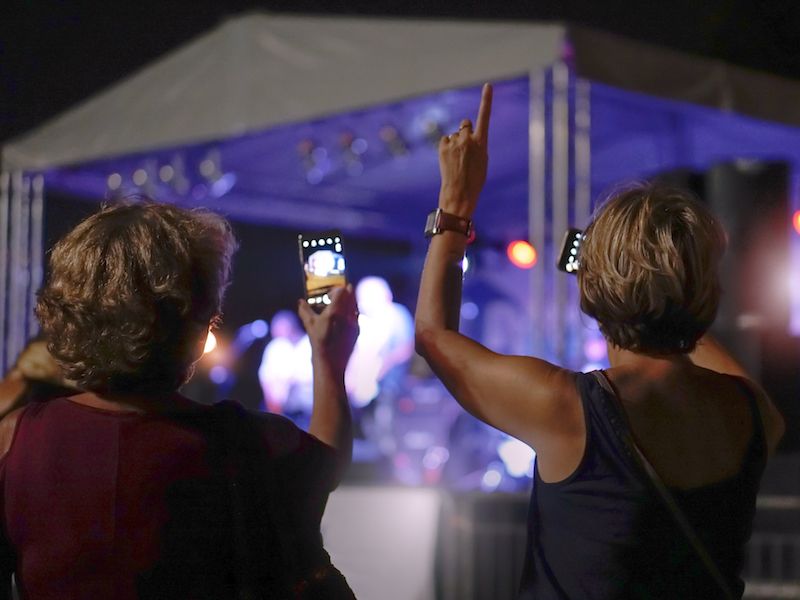
We’ve been getting excited about summer activities all year: trips to the beach, chilling out by the swimming pool, and impaired hearing? That’s correct, summer has a few hidden risks to your hearing, either from loud sounds or the environmental situations you might find yourself in. Any sounds over 80 decibels can harm your ears, while lasting loss of hearing can take hold in pools or other bodies of water. To keep your hearing safeguarded this summer, you need to be conscious of your environment and take preventative measures. Here are 6 of the summer’s hidden hearing risks.
When You Travel to Concerts, Wear Hearing Protection
Whether you’re at an indoor venue or an outside show venue you still need to use hearing protection during live music. 90 decibels is in the danger zone for hearing damage and live music reaches this level even at outdoor shows. So regardless of whether you’re attending an outside or inside concerts, it’s a practical idea to wear earplugs. Earplugs reduce the sound while still permitting you to hear and enjoy the music. If you’re taking young children to a concert, think about buying them a heavy duty pair of earmuffs because kids have more delicate hearing than adults.
Fireworks Are More Than Just Loud
Honestly, there are a lot of reasons to avoid fireworks in the summer. We’re not talking about the professional 4th of July fireworks show, we mean the backyard fireworks that trigger hundreds of incidents throughout the summer season. Home fireworks reach decibel levels of nearly 155 which can hurt your ears on top of causing hand problems, blindness and home fires. This 4th of July, leave the fireworks to the pros and enjoy the display from a safe and sound distance.
Hearing Loss Can be Brought About by Lawnmowers
If you’re serious about your lawn, it’s likely that you’re out there at least once a week on your mower, using your edger, and trimming your bushes. But that muffled sensation in your ears is an indication that your ears have taken damage. That’s because the constant noise from your lawn tools impact your hearing over time. If you’ve ever seen lawn care pro’s, you probably have noticed them utilizing hearing protection, next time you do yard work with loud power equipment, you need to take a hint from them and wear earmuffs or earplugs.
How to Protect Your Hearing at Pools And Beaches
Millions of people suffer from swimmer’s ear every summer, which happens when bacteria-packed water becomes stuck inside your ear canal. The bacteria will then infect the ear, producing painful earaches and swelling. These bacteria are generally found in lakes and rivers but sometimes also be found in pools and hot tubs if the water isn’t properly treated. But if you have your ears treated by a hearing expert you should be ok, and no lasting hearing loss will happen. To be safe, when swimming in your pool, use special swimmers earplugs and keep the chemical balance precise to lessen the chance of getting swimmers ear.
Water Sports And Boats
If you enjoy the water, the summer season is beach and boating time for you. But, jet ski and boat engines are usually loud,they can get up to over 100 decibels. Continuous subjection to that much noise for a period of about 15 minutes can bring about irreparable hearing damage. In this situation also, putting on a set of disposable foam earplugs is a smart strategy.
Car Races Can Injure Your Hearing
It doesn’t make a difference what type of auto racing you enjoy, midget, Formula 1, drag racing, motorcycle Formula 1. If you go to a lot of auto-races this year, they all present a risk. 120 dB is well within the danger zone for hearing damage and lots of races go way above this. As pointed out earlier, your children should use muffs while you should wear earplugs at the very least. Because you might not get to appreciate the sounds of any races in the future if you don’t.